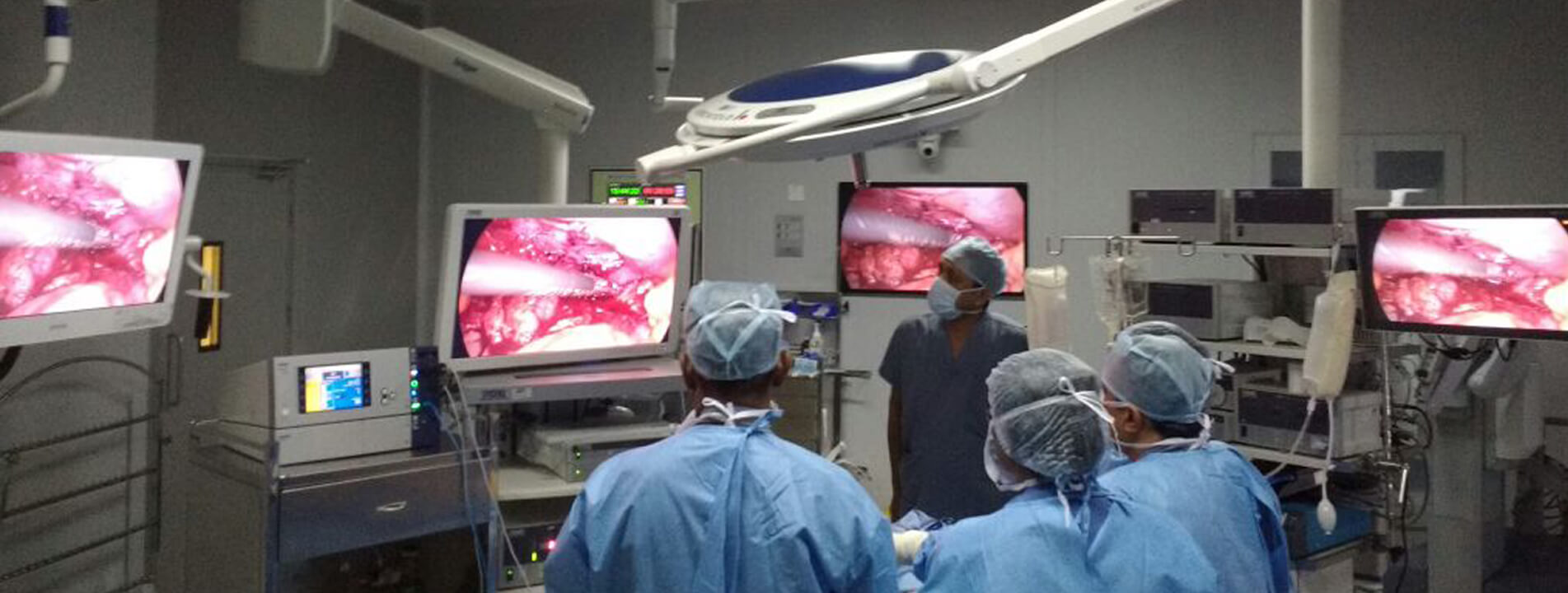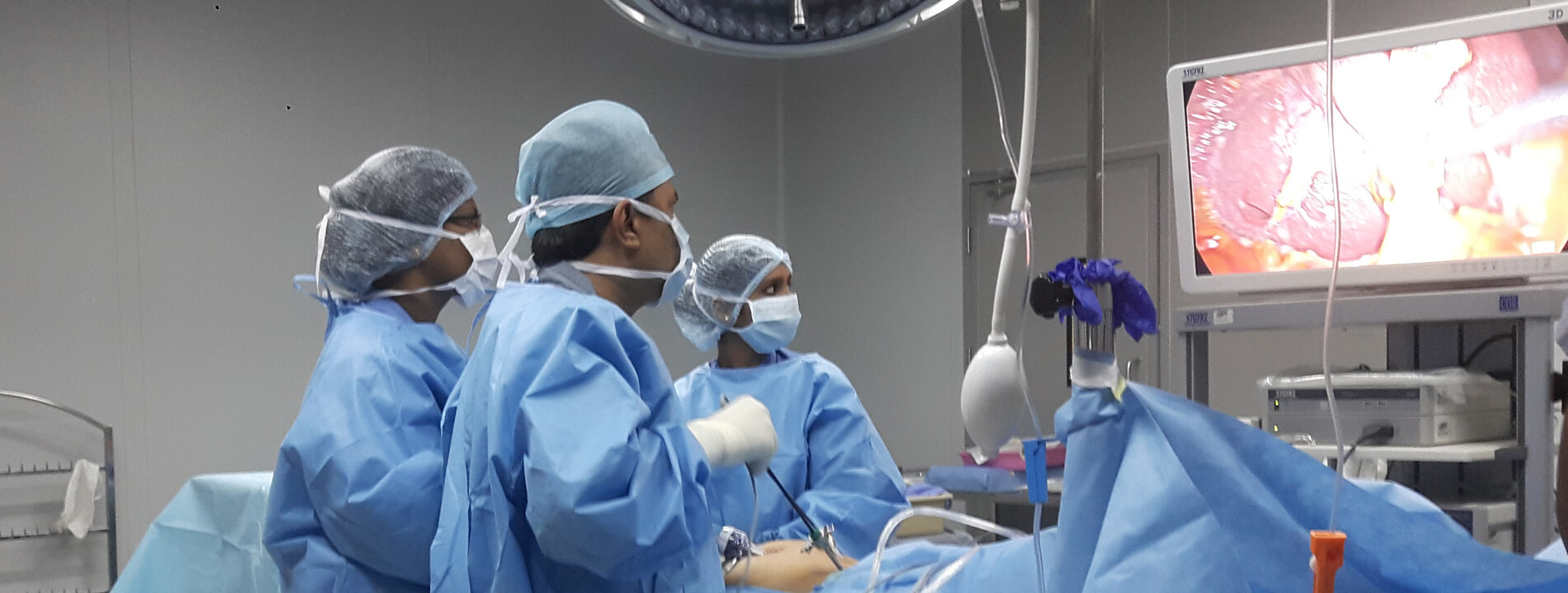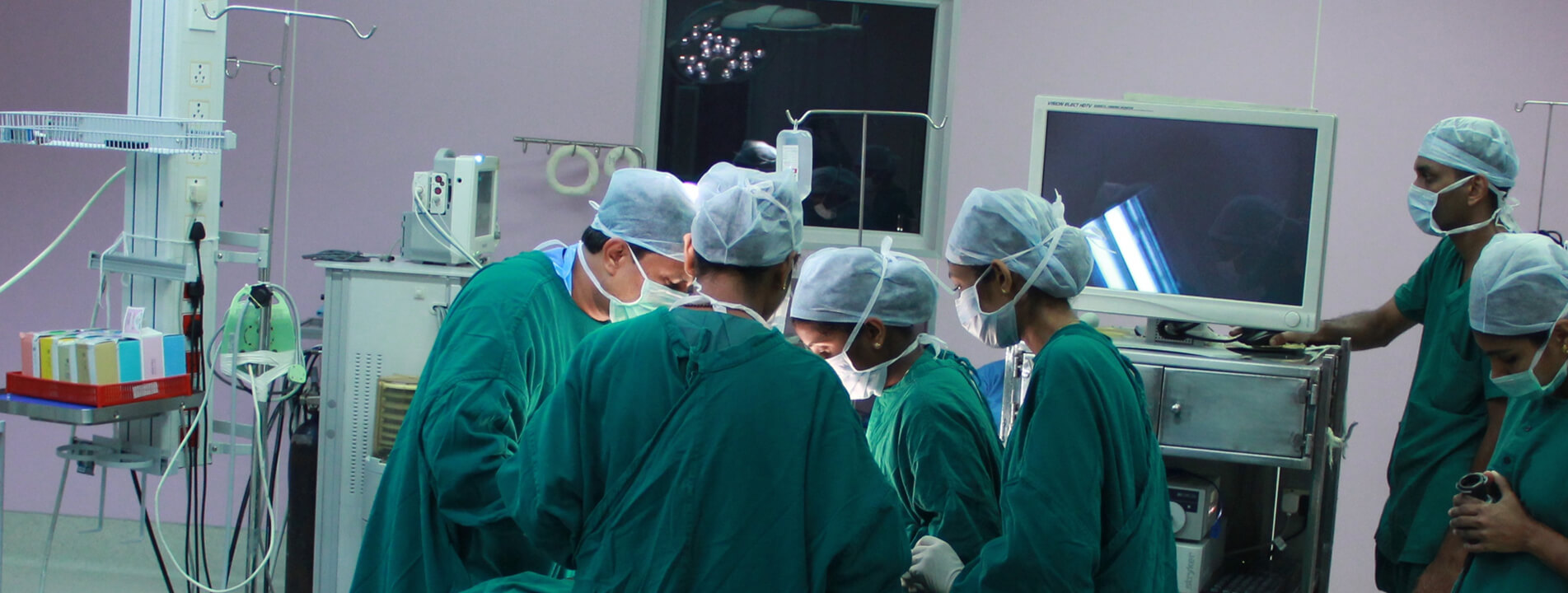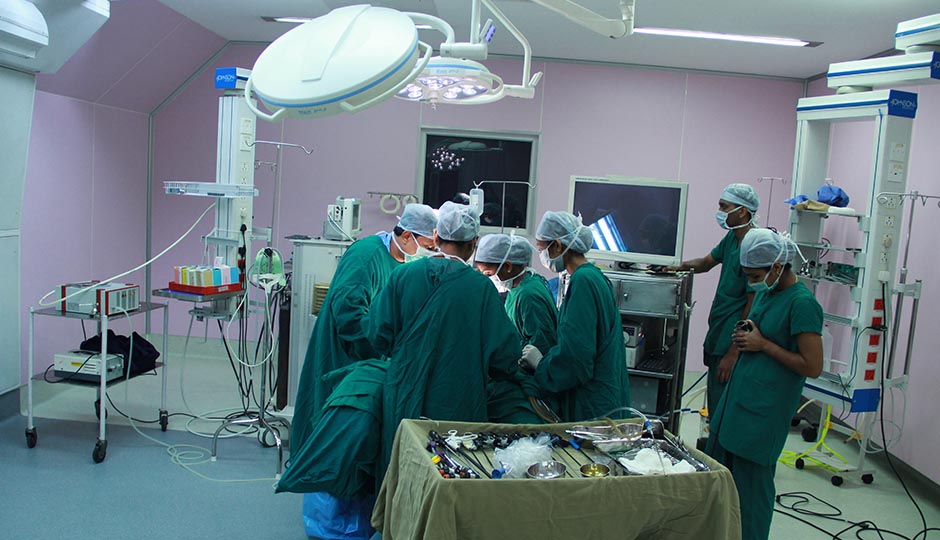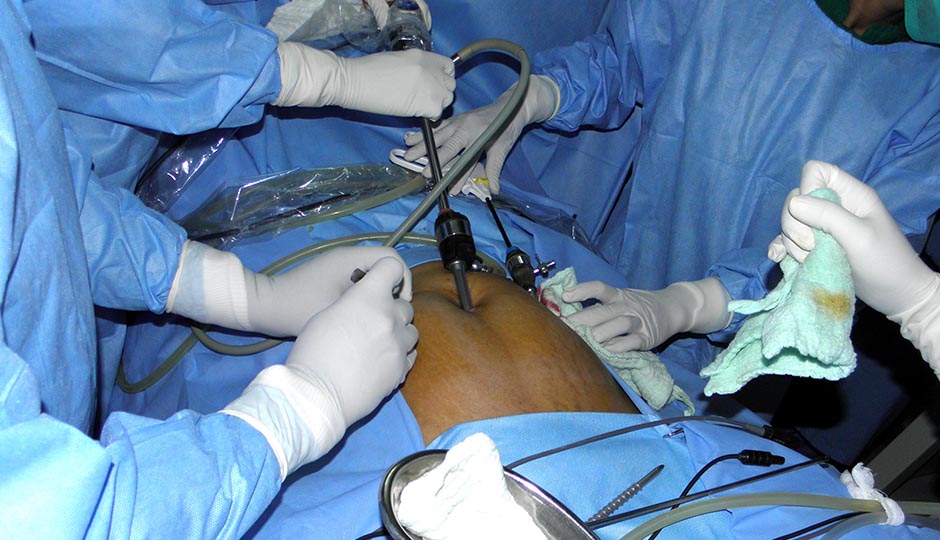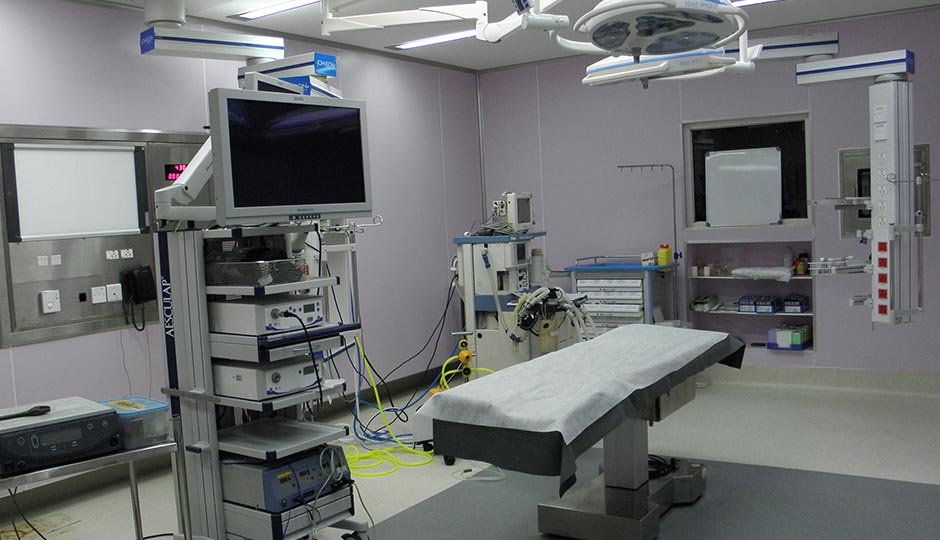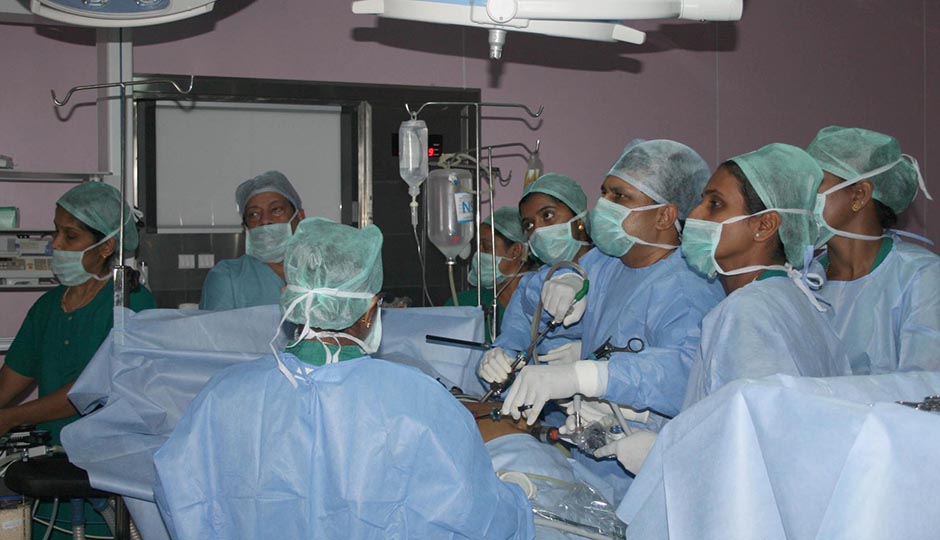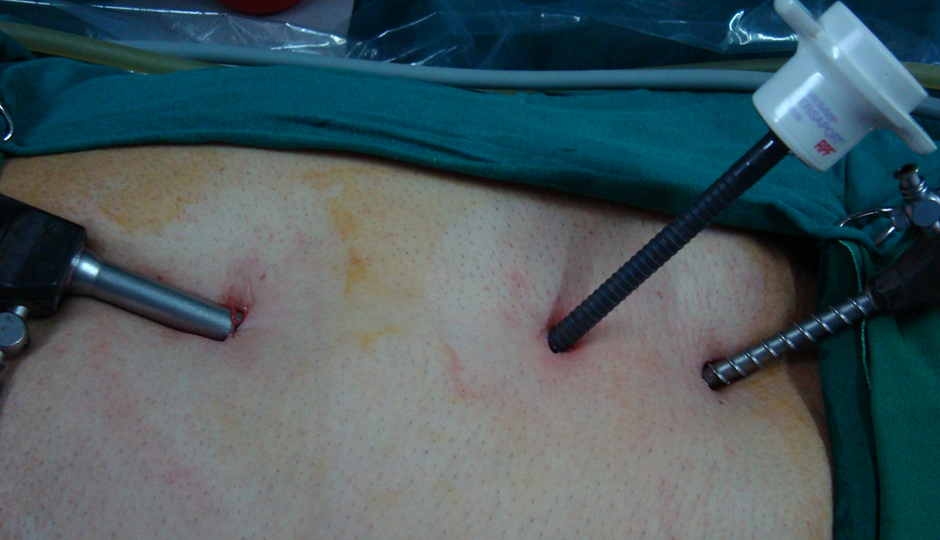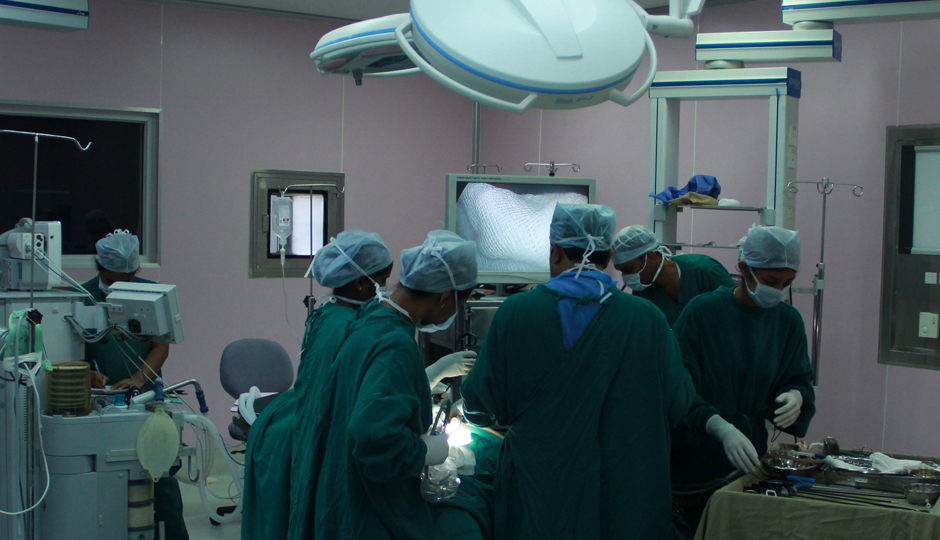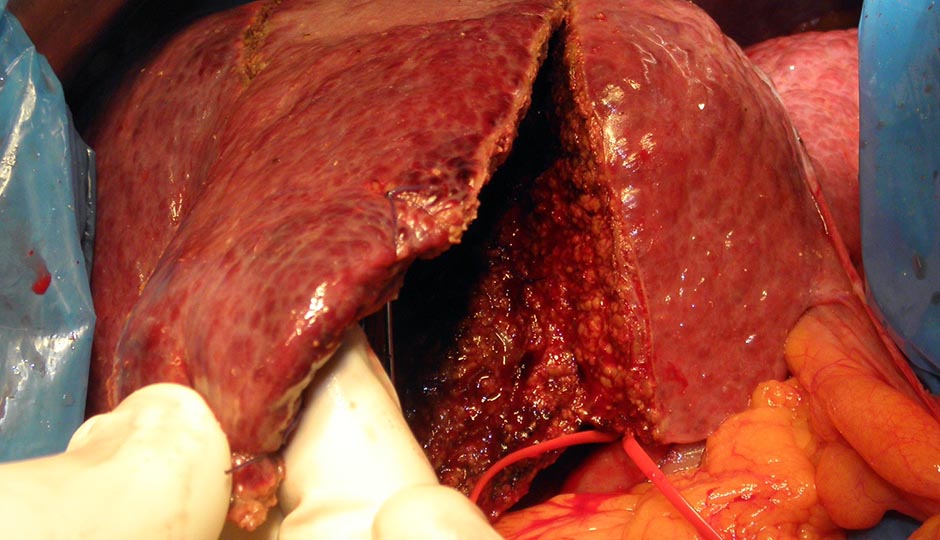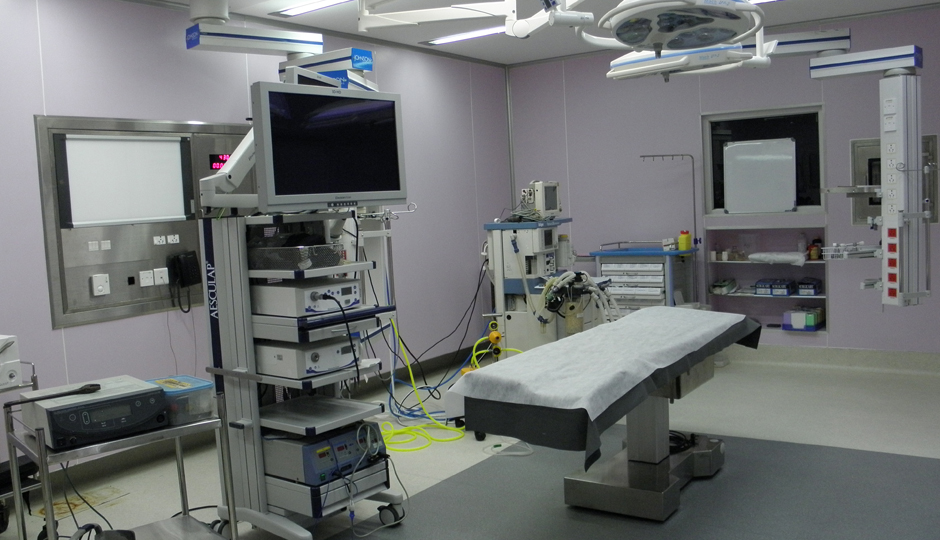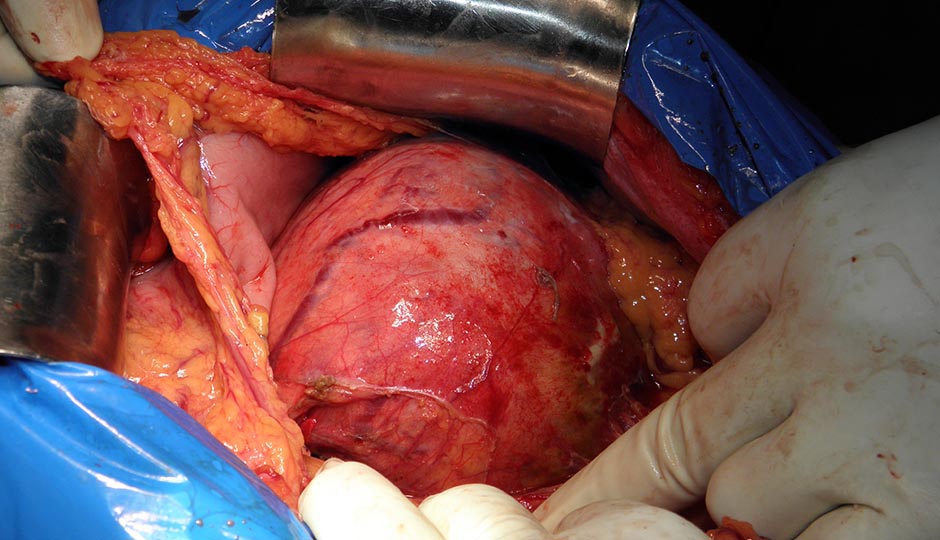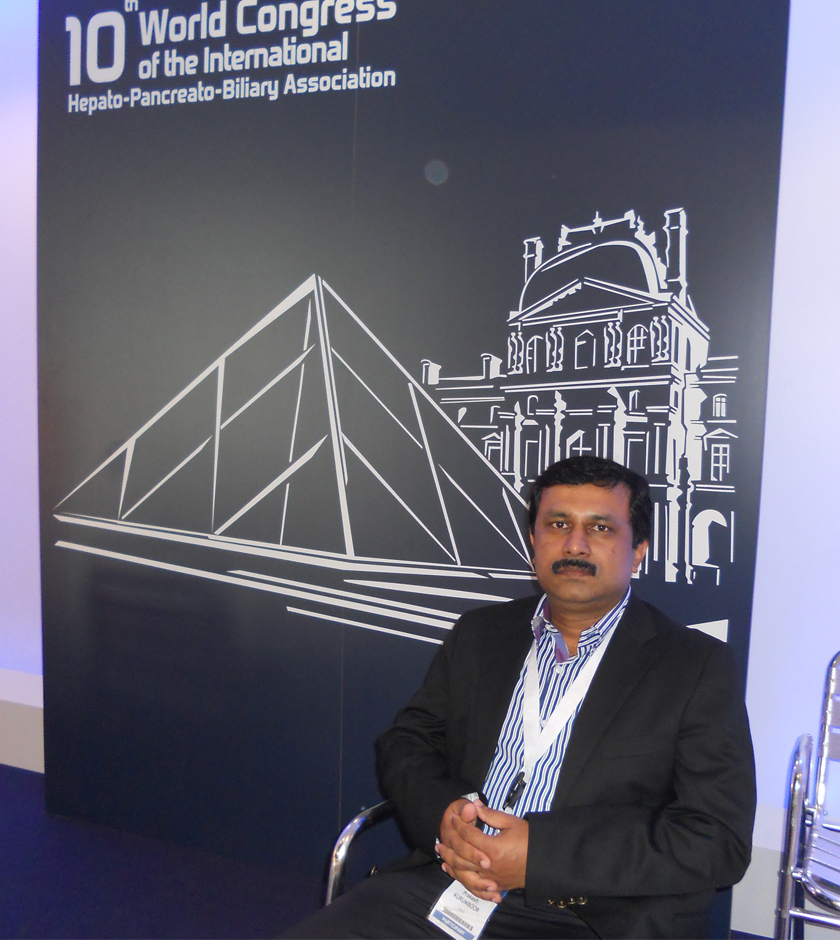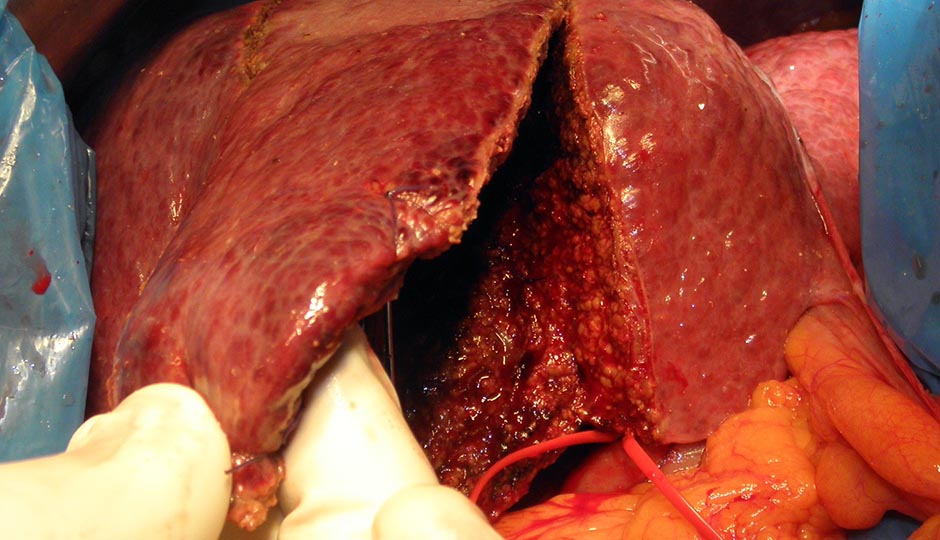About me
Dr K Prakash is one among the senior most Surgical Gastroenterologist of Kerala and in fact he belongs to first batch of MCh (SGE) of the state. Dr K. Prakash is a GI Surgeon with keen interest in Hepatobiliary, Pancreatic diseases & Laparoscopic Surgeries. He is trained in Liver Transplantation as well. He is currently the Senior Consultant GI Surgeon at Aster Medcity, Kochi.
Read more
Welcome dear guest to my website!
Why Laparoscopy? Is there any advantage other than cosmetic?
A very pertinent question indeed! In laparoscopic surgery or key-hole surgery the steps and the procedure performed are same as in open surgery. Since the entire operation is performed through small incision it provides the following benefits to the patient:
- Less pain after operation.
- Less tissue trauma and hence healing time is reduced
- Early ambulation and quick recovery
- Early return of bowel functions
- Early return to work and social life
- Cosmetic advantage due to small scars
Apart from these advantages generally there is no specific period for rest following surgery after laparoscopy unless specifically instructed by your surgeon. That permits patient to be socially active and helps get back to their normal life very quickly. For example, a patient who undergoes laparoscopic surgery for colon cancer is fed orally and discharged early compared to open surgery even though he had a radical surgery. Similarly, these benefits make an overweight person who had laparoscopic bariatric surgery for morbid obesity able to go home in 3rd or 4th day and recover quickly. The specific pages in this website are designed to address most of your queries and please feel free to communicate to me should you have any specific issues to be discussed. To know more read on………..
Read moreLuminal GI Surgery
These procedures are done for lesions of esophagus, stomach, small intestine and colon. Most of these procedures are done laparoscopically. They include,
- Thoraco-laparoscopic minimally invasive esophagectomy
- Laparoscopic Surgery for Achalasia Cardia
- Laparoscopic fundoplication for Hiatus Hernia or GERD
- Radical Gastrectomy
- Small Bowel resections/Strictureplasty
- Laparoscopic Colonic resections, Anterior Resections, APER etc.
- Lap Restorative proctocolectomy with Ileal Pouch Anal Anastomosis (IPAA)
Laparoscopic Colorectal Surgery
Colorectal surgery is usually done for colorectal cancers and for complications of diverticular disease. Blood in stools, mucus per rectum, and alteration of bowel habits, weight loss or anaemia should be investigated for any colorectal disorder. All colorectal surgeries including surgery to remove entire colon (for polyposis coli, ulcerative colitis etc) effectively done laparoscopically. Patients recover very early, require no/minimum ICU stay and are started with oral feeds very early. The following are the common procedures:
- Laparoscopic Anterior resection for carcinoma rectum.
- Laparoscopic APER for anal canal tumours
- Laparoscopic colonic resection (Hemicolectomy, Segmental Colectomy etc) for benign and malignant lesions
- Laparoscopic restorative proctocolectomy with IPAA for polyposis coli
Pancreatic surgery
Pancreatic surgery also requires through planning and execution of surgery and meticulous postoperative care.
- Whipples pancreaticoduodenectomy for carcinoma pancreas and periampullary carcinoma
- Lateral Pancreatojejunostomy, Head-Coring with LPJ for chronic pancreatitis
- Distal pancreatectomy (often done laparoscopically)
- Median pancreatectomy
- Pancreatic necrosectomy and surgery for pseudocyst (often done laparoscopically)
Hepatic resection
Hepatic/liver resections are done commonly for liver tumours. It requires good preoperative planning, meticulous surgery and intensive postoperative care for good results following hepatectomy. The following procedures are done regularly in my department.
- Right and left hepatectomy
- Parenchyma �conserving liver resection
- Surgery for Kalatskin tumour
- Radical cholecystectomy for carcinoma gall bladder
- Surgery for choledochal cyst (often done laparoscopically)


